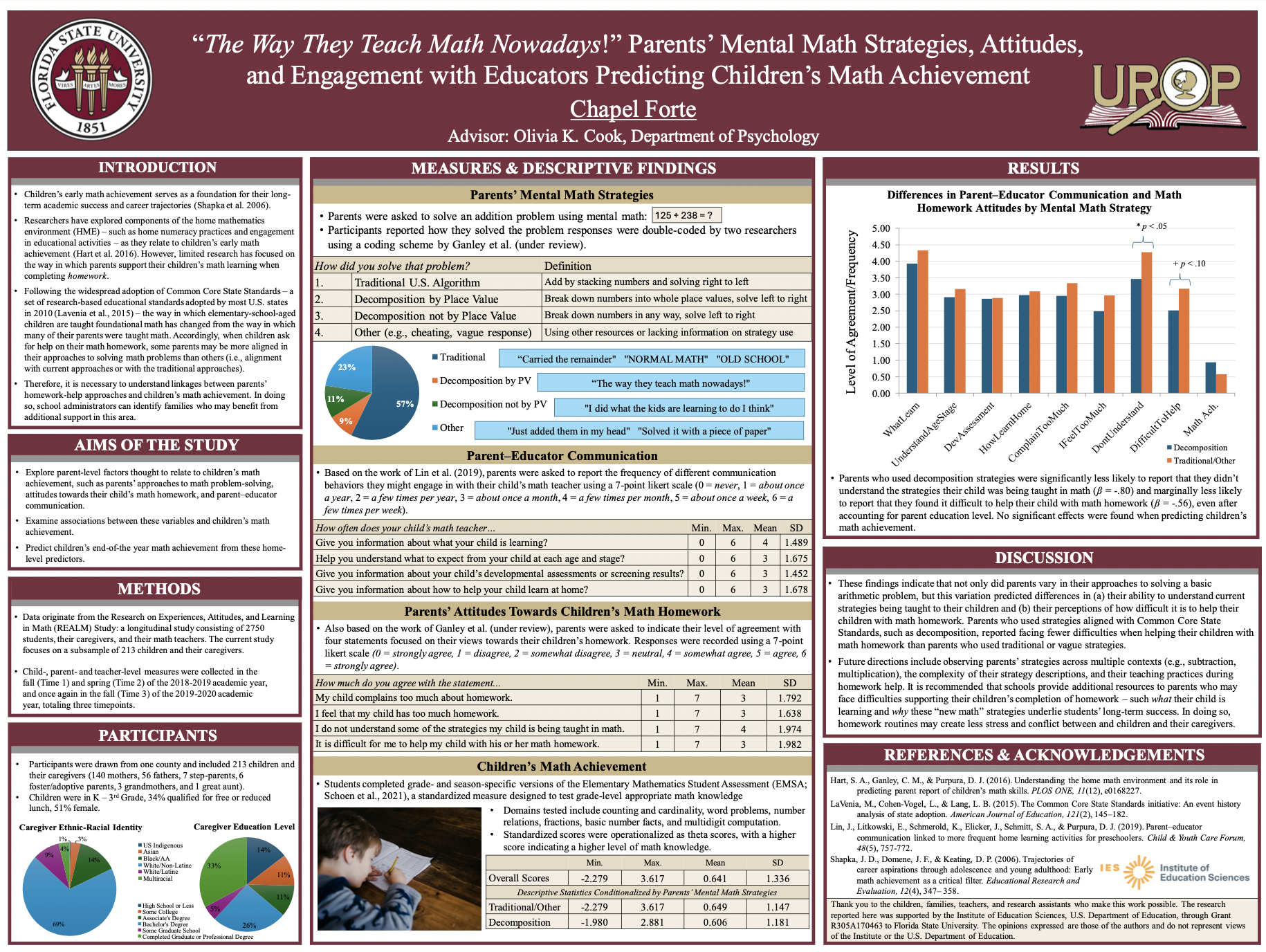Research Symposium
24th annual Undergraduate Research Symposium, April 3, 2024
Chapel Forte Poster Session 2: 10:45 am - 11:45 am/50
BIO
I am from Nashville, TN and am currently a Sophomore in the Honors Program at FSU. My research interests include the fields of Psychology, Law, and Policy, specifically regarding foster care/adoption. I hope to use my passions and experiences to improve the lives of children in the United States foster care/adoption systems. After completing my Undergraduate degree, I intend to further my education in Law school or Graduate school to help me reach my career goals in the field of child advocacy law and policy research for foster care/adoption.
“The Way They Teach Math Nowadays!” Parents’ Mental Math Strategies, Attitudes, and Engagement with Educators Predicting Children’s Math Achievement
Authors: Chapel Forte, Olivia CookStudent Major: Political Science
Mentor: Olivia Cook
Mentor's Department: Psychology Mentor's College: University of North Carolina Greensboro Co-Presenters:
Abstract
There are many factors that can affect children’s mathematical performance. Specifically, children’s learning environments and their interactions with others in these environments can play a role in their development. This project is focused on examining the role that home- and school-level factors play in elementary school children’s mathematical performance. Although research exists that connects the broader home mathematics environment to children’s early math skills, further exploration is necessary to understand the role of specific parent–child interactions – such as homework help – and the quality of communication between parents and educators on children’s mathematical achievement. In doing so, this research can provide educators with a deeper understanding of how to best support students and families from various backgrounds. In part of a longitudinal study, parents completed a survey about the home environment, homework help interactions, and the quality of communication with their child’s math teacher. Children’s math achievement was assessed through a standardized test administered in the classroom. Using quantitative analyses, this research project found that parents who used mental math strategies aligned with Common Core State Standards, such as decomposition, reported facing fewer difficulties when helping their children with math homework than parents who used traditional or vague strategies.
Keywords: math, children, psychology, parent, educator


